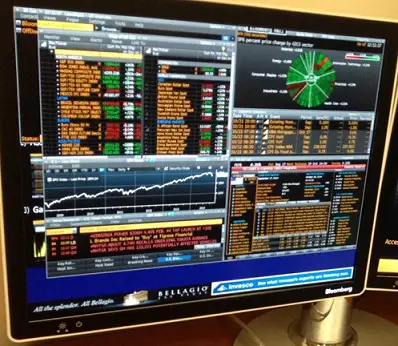On Monday, Switzerland’s two largest investment banks, UBS and Credit Suisse, saw their stock prices plummet as news of their weekend merger failed to calm a jittery market that remains worried over the state of the world’s financial system.
UBS shares were down 5% as of 11:20 GMT, having regained ground after falling 10% in trading earlier. Credit Suisse shares plunged 60%.
The pan-European Stoxx 600 banking index fell almost 1.8% as that was occurring, as German banking titans Deutsche Bank and Commerzbank fell more than 3%, France’s BNP Paribas fell 3.7%, and other major banking giants such as ING, Societe Generale, and Barclays all fell more than 2.7%.
On Sunday, UBS struck a deal to acquire failing Credit Suisse for three billion Swiss francs ($3.24 billion) in stock, in a deal put together by Swiss regulators. Analysts however were unimpressed, warning the deal ran the risk of distracting UBS executives and hurting returns at the bank, even despite the 9 billion-franc government guarantee to cover potential losses from Credit Suisse assets and 100 billion francs that Switzerland’s central banks guaranteed in liquidity.
Analysts at Keefe, Bruyette & Woods said in an interview with the Financial Times, “UBS has traditionally operated a high returning, high quality, stable franchise. The acquisition of Credit Suisse throws much of this into question, in our view.”
Even though UBS will now be the largest wealth manager in the world following the merger, with more than $5 trillion in assets under management, there are still worries about the health of the assets it has absorbed from Credit Suisse.
Neil Shearing, group chief economist at Capital Economics, said in an interview with CNBC, “One issue is that the reported price of $3.24 billion equates to approximately 4% of book value, and about 10% of Credit Suisse’s market value at the start of the year. This suggests that a substantial part of Credit Suisse’s $570 billion assets may be either impaired or perceived as being at risk of becoming impaired. This could set in train renewed jitters about the health of banks.”
Analysts are also worried about the handling of the write-off of $17 billion in Credit Suisse AT1 bonds, which was agreed to as part of the merger. The write-off has angered many bond-holders, whose bonds are now worthless, and it has revealed one more financial risk in the banking sector, which will further undermine investor confidence.
Analysts note that following the merger, investors have even more concerns about the long term benefits of the merger, as well as the risks inherent to the banking sector in general. If such problems could befall a giant like Credit Suisse, even in Switzerland, which had previously been viewed as a model of sound banking, now every bank’s outlook is being assessed with a greater sense of worry and concern.

